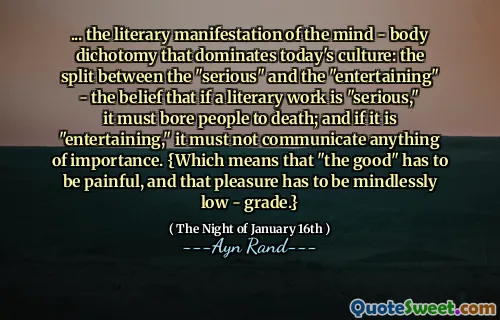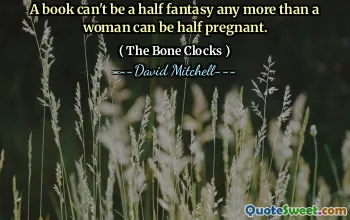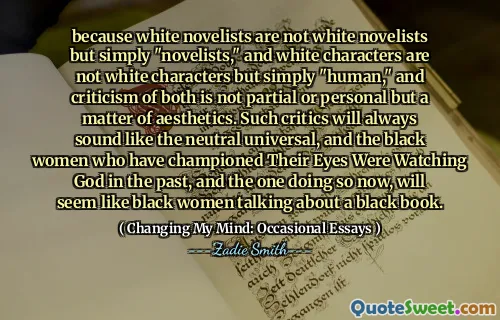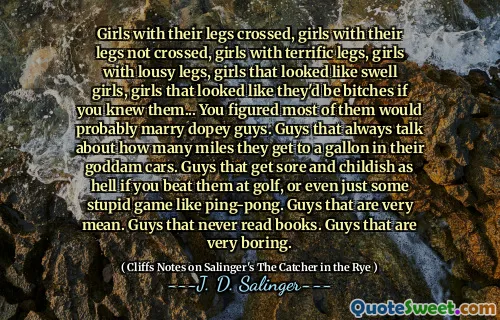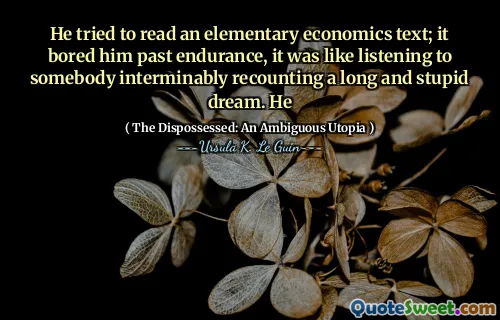
... the literary manifestation of the mind - body dichotomy that dominates today's culture: the split between the "serious" and the "entertaining" - the belief that if a literary work is "serious," it must bore people to death; and if it is "entertaining," it must not communicate anything of importance. {Which means that "the good" has to be painful, and that pleasure has to be mindlessly low - grade.}
This quote astutely critiques a pervasive cultural dichotomy in the way literature and, by extension, all art forms are perceived. It highlights the unfortunate division that categorizes works as either “serious,” which are presumed to be dull or inaccessible, or “entertaining,” which are perceived as lacking meaningful content. This splitting ultimately undermines art’s full potential by boxing it into limiting labels. When art is seen as “serious,” it is expected to be profound but unengaging or “painful,” as the quote suggests. Conversely, works that bring joy or pleasure are often dismissed as trivial or “mindlessly low-grade,” implying that entertainment and importance are mutually exclusive.
This polarizing mindset is frustrating because it overlooks the fact that great art can and often does combine both elements—offering intellectual depth while being captivating. The quote challenges the notion that aesthetic pleasure and rigor exclude each other and reveals an underlying cultural bias, one that diminishes the value of approaches that marry enjoyment with meaning. Moreover, this worldview can alienate audiences who seek enrichment without sacrificing engagement, forcing a false choice between edification and enjoyment.
Ultimately, the quote encourages a reconsideration of how we define “good” art. It warns against conforming to rigid, antiquated distinctions that favor suffering over delight or seriousness over entertainment. Instead, it calls for embracing literature—and all art—as a realm where importance can be communicated through pleasure, and seriousness need not repel the audience but rather invite them into profound experiences that resonate deeply without dullness.
